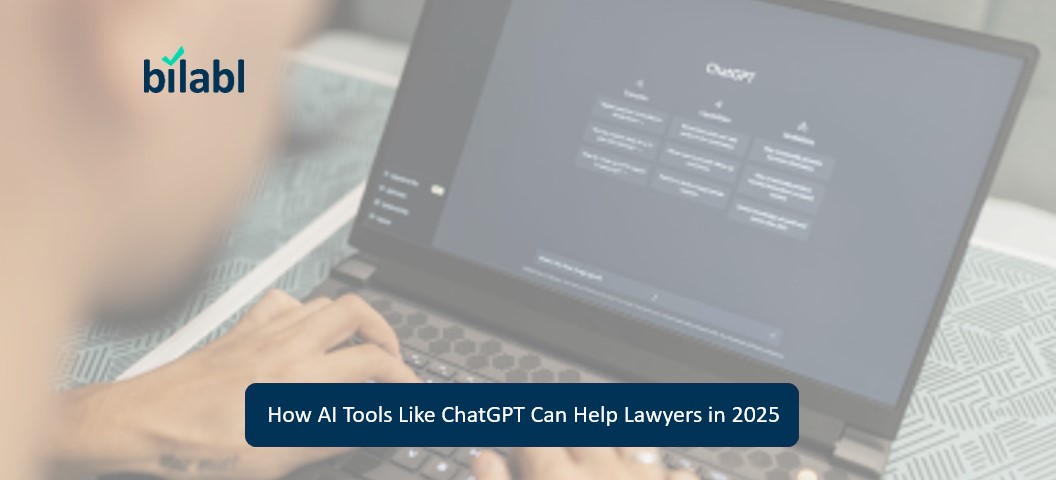Law firms today are drowning in administrative work - endless emails, document reviews, and time tracking that take valuable hours away from client service and case strategy. Managing workflows efficiently has become one of the biggest challenges for legal professionals. The demand for faster turnaround times, increased accuracy, and better client communication is higher than ever. Firms that fail to optimize their processes risk falling behind. This is where AI-driven solutions come into play, helping law firms cut through inefficiencies and focus on delivering real value to their clients.
1. Legal Research and Document Analysis
AI-powered tools assist lawyers in conducting comprehensive legal research by quickly analyzing vast amounts of data to identify relevant case laws, statutes, and legal precedents. This capability reduces the time spent on research and helps discover issues the human eye might miss, leading to more thorough and accurate legal analyses.
One of the most advanced tools emerging in this space is OpenAI’s Deep Search, designed to refine search results beyond simple keyword matching by understanding legal context and argument structures. While this offers an unprecedented advantage in research accuracy, the cost of Deep Search can be significant. Firms looking to leverage this technology must weigh in the finding relevant email chains, understanding prior discussions, and ensuring no critical information is missed.
2. Drafting and Reviewing Legal Documents
Generative AI models like ChatGPT can draft and review legal documents, including contracts and briefs, by analyzing existing templates and relevant legal information. This not only accelerates the drafting process but also ensures consistency and reduces the likelihood of errors. AI-powered tools assist in locating key terms, identifying inconsistencies in contracts, and highlighting potential gaps in legal documents. By automating parts of the review process, lawyers can focus on higher-level strategy and client advising.
3. Client Interaction and Communication
Lawyers handle an overwhelming volume of emails daily, often spending hours sorting through client messages, internal communications, and court correspondence. Managing and keeping track of these interactions is time-consuming, and onboarding a new lawyer into ongoing communications can be a logistical nightmare - finding relevant email chains, understanding prior discussions, and ensuring no critical information is missed.
4. AI-Assisted Legal Strategy
While fully predictive analytics for case outcomes is still developing, AI is already assisting legal professionals in strategy building. By analyzing historical case data, AI tools can provide insights into patterns in legal arguments, judge rulings, and procedural trends. These insights help lawyers make informed decisions on case strategy, anticipate potential challenges, and improve risk assessment. AI can also assist in document analysis, identifying critical clauses in case materials, and flagging potential legal risks, allowing firms to prepare stronger cases with greater efficiency.
5. Automating Administrative Tasks
Beyond research and drafting, AI is transforming the way law firms handle daily administrative work. Time tracking, appointment scheduling, document management, and compliance monitoring can now be automated with AI-powered tools, significantly reducing the burden on legal professionals. These systems not only improve efficiency but also enhance accuracy, eliminating human errors in repetitive tasks. With AI handling these essential but time-consuming processes, lawyers can dedicate more time to client advocacy and strategic planning, boosting overall firm productivity.
The Changing Role of Lawyers in an AI-Driven Industry
As AI takes on more administrative and analytical tasks, the role of lawyers is shifting from routine document handling and research to higher-value strategic advisory work. Lawyers who embrace AI will spend less time on repetitive tasks and more time focusing on client relationships, negotiation strategies, and legal innovation. The firms that integrate AI effectively will not only improve efficiency but will also enhance their ability to provide better legal outcomes for clients. This shift represents an opportunity for legal professionals to redefine their expertise in a way that prioritizes creativity, advocacy, and critical thinking.
Transform Your Law Firm with bilabl
Law firms looking to stay ahead need more than just AI - they need a platform that brings everything together seamlessly. bilabl integrates legal workflows, automated billing, matter and client management into one powerful system, ensuring you maximize efficiency while focusing on what truly matters: your clients. Ready to take your practice to the next level? Discover how bilabl can transform your firm today
If you would like to know more, contact us for a demo: https://www.bilabl.io/form/request-demo. You can also send us an email at sales@bilabl.io or visit our website: https://www.bilabl.io/
